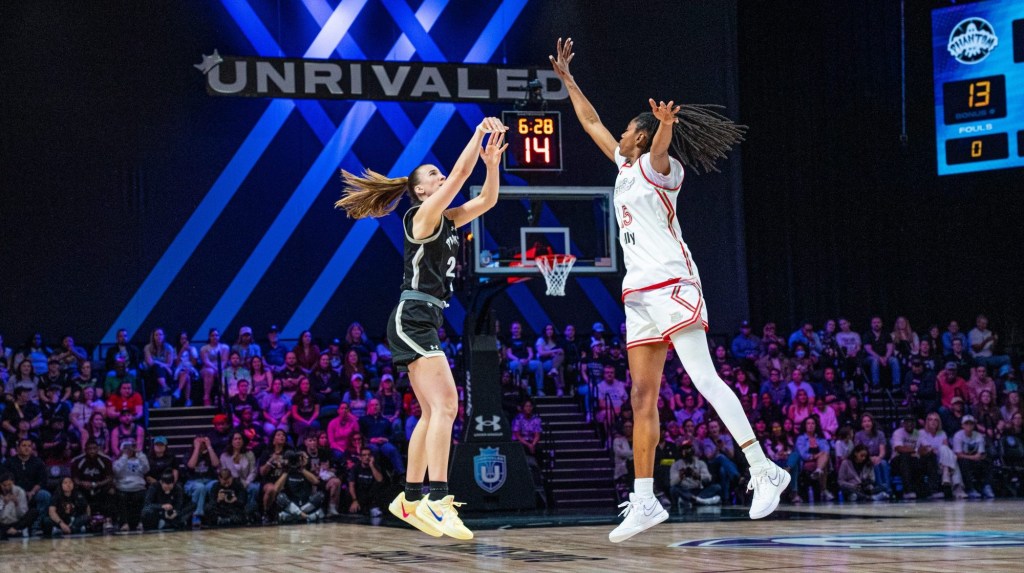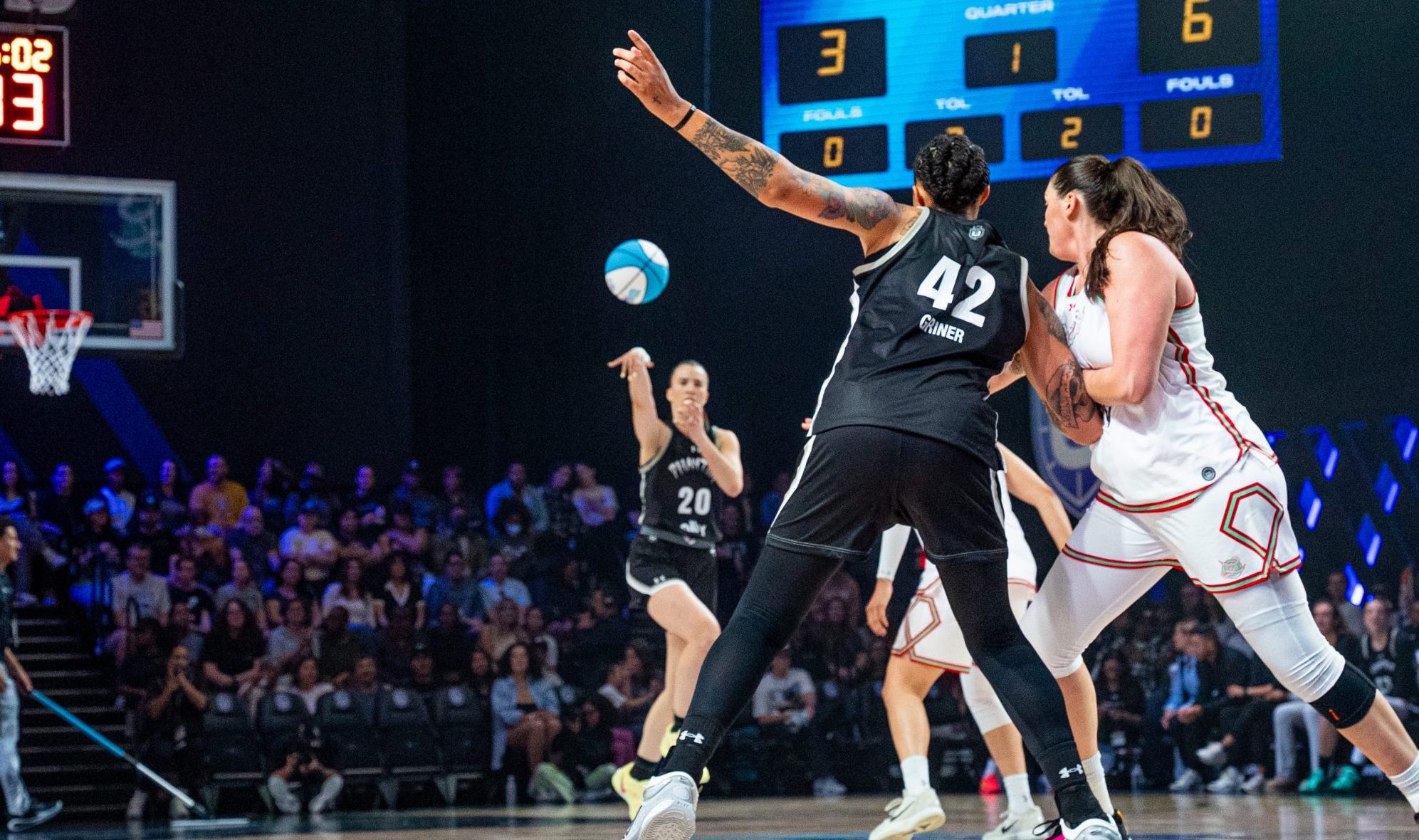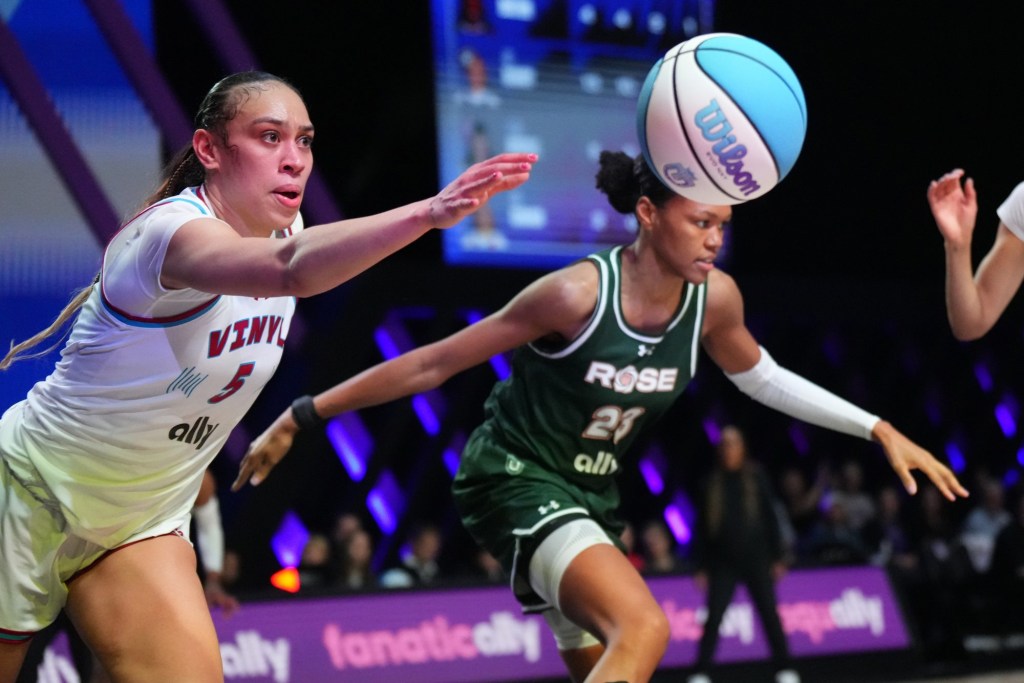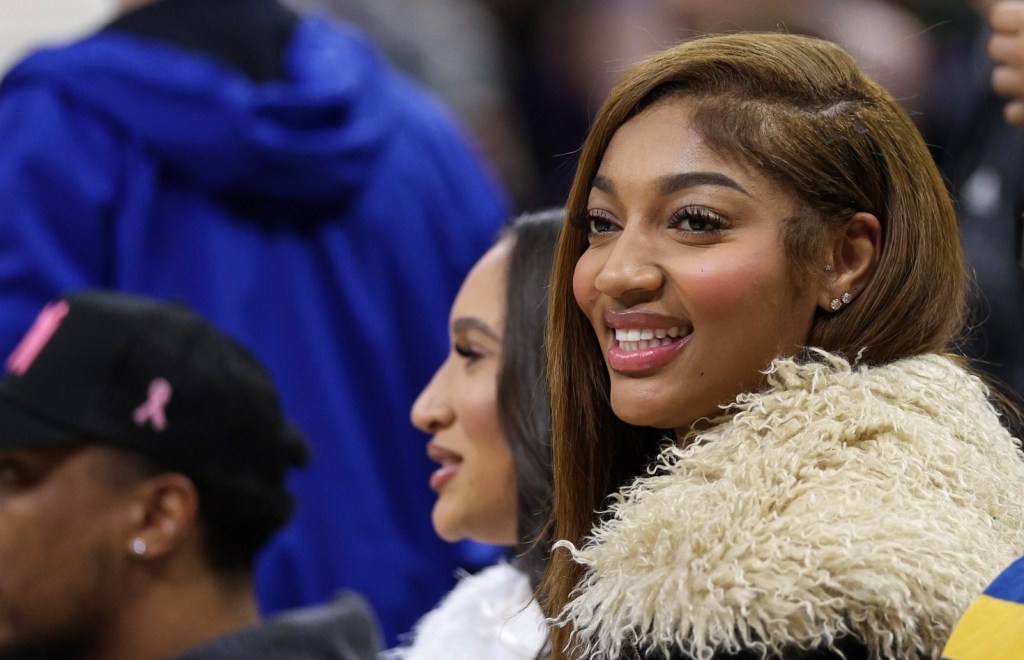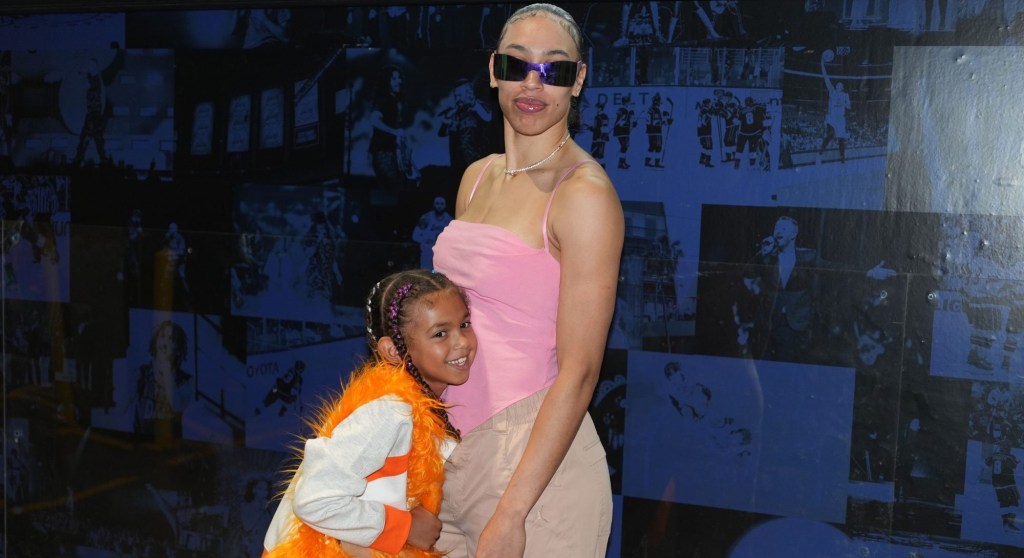MEDLEY, Fla. — The consistent theme emerging from the opening weekend of the new Unrivaled women’s basketball league: Pay attention, WNBA.
The 3-on-3 experiment kicked off its inaugural season with two pairs of games on Friday night and Saturday afternoon in Miami. Running from January through March, the league falls smack in the middle of the WNBA’s free agency period, as well as negotiations for a new collective bargaining agreement.
The setup has created an anomaly in the sports labor world. For one, Unrivaled provides close proximity for players to have conversations about WNBA free agency, and try to court one another to their teams. But the new league also has better player amenities than several WNBA teams, and an average salary not far behind the summertime league’s maximum. Unrivaled players have been vocal about how the 3-on-3 league puts pressure on the WNBA during CBA negotiations.
“It’s not okay that [in the WNBA] we cold tub with college athletes, it’s not okay that we share our locker room with random people, or it’s not okay that we have to train in a rec center,” Satou Sabally, a WNBA free agent, said Thursday during Unrivaled media day. “I think Unrivaled is just setting a great standard in that way of what we deserve, and we will all come back and also demand it for our teams.”
League co-founders Napheesa Collier and Breanna Stewart are both vice presidents of the WNBA Players Association. Collier said Thursday that Unrivaled wasn’t intentionally scheduled around CBA negotiations, but sees the coincidence as a “perfect opportunity.”
“With the timing with the CBA, I think it’s just the perfect time to kind of blow the lid off of what our image of women’s sports and how you treat women’s athletes is,” Collier said. “ I think we’re seeing what we like here and seeing what is possible, and we’re going to take that to the table when we go.”
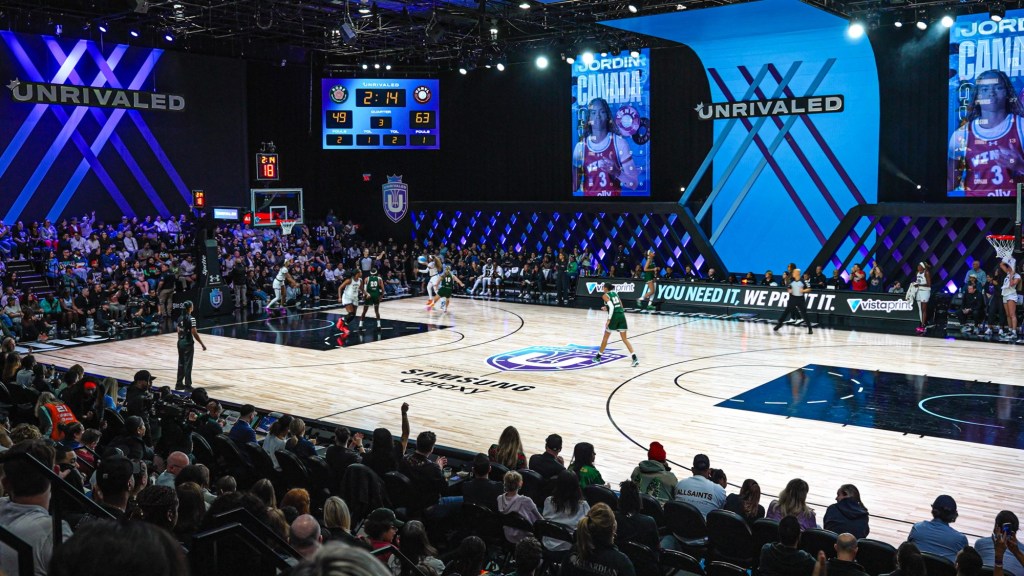
There are many factors coalescing at the same time as CBA negotiations: Unrivaled, the new media rights deal, the 2024 rookie class, and the broader growth of women’s sports. “I couldn’t have asked for something better if it was a Hollywood script,” Terri Jackson, executive director of the WNBPA, tells Front Office Sports. “I hope there’s a movie on this.”
Jackson says that in negotiating the 2020 CBA, the WNBPA first went for the “low-hanging fruit,” such as getting every player their own hotel room on the road, before making bigger asks. This time around, she says the union has taken an “aggressive” approach to “have the big conversations” over the next 10 months before the current deal expires at the end of the 2025 season. Codifying charter flights, increasing salaries, adding more childcare, and getting players in adequately sized arenas are all on her to-do list alongside union reps like Stewart and Collier who are already “thinking about the business of sport.”
Minimum standards for professionalism across the league were something Jackson says the players wanted in the last CBA. “It was a little telling and a little disappointing that the league and the teams pushed back on that,” Jackson says. But, their concerns coupled with the facilities differences exposed by players at the 2021 NCAA women’s basketball tournament pushed WNBA owners to step up, she adds. In opting out of its CBA in October 2024, the WNBPA said a key goal going into negotiations is building on the standards set by teams like Las Vegas, Seattle, Phoenix, and New York.
That’s where Unrivaled comes into play—and all the public pressure from players being vocal about the new 3-on-3 league’s facilities.
“I think Unrivaled shows us another layer of innovation,” Jackson says. “I won’t name any teams, but I am probably hyper-focused on teams that do not demonstrate, in 2025, what it means to have a WNBA team, who don’t demonstrate that this is a business that they must invest in, and show that they understand what it means to be a professional franchise.”
Unrivaled president Alex Bazzell, Collier’s husband, says the excitement players had for the new league’s off-the-court amenities compared to the basketball facilities was “a little unexpected.”
“Players were more pumped about the estheticians, the glam room from Sephora than almost our show court,” Bazzell tells FOS. “I think it just shows the little stuff matters more than we even anticipated.”

Some players have raved about Unrivaled’s cold tubs and physical trainers, others about around-the-clock access to the weight rooms and courts. Angel Reese has touted the massages, sauna, facials, and meals, and said she’s been texting her Chicago Sky operations staff about what they need to implement. Brittney Griner and Dearica Hamby are appreciative of the childcare during practices and games. DiJonai Carrington loves the diversity of products in the hair and makeup room.
“ For them to have those things which are very inclusive, an edge brush, even hair products that are specifically for ethnic hair, I think is super important, especially in a space where you do have a lot of Black and brown girls with that texture hair,” Carrington tells FOS. “I think it’s an applaud to them for making sure that they have the quote unquote ‘little things’ covered—but to us it’s not little.”
“They really have crossed everything off the list that you could possibly need, so kudos to them for just listening to us over the years,” Alyssa Thomas, who has been outspoken about her WNBA team’s shared-use practice facility, tells FOS.
Unrivaled doesn’t have to handle a lot of what the WNBA does, most notably travel, but also individual ownership groups that manage their own facilities and venues. It’s led to a patchwork of professionalism in the WNBA, where some markets have sparkling practice facilities and full-sized arenas, while others use a public gym or play in front of 3,500 fans. Amenities including cold tubs, childcare, and 24/7 facility access are few and far between.
“It’s kind of pushing the needle a little bit farther—like, okay, franchises are doing it, now Unrivaled is doing it, this is what I’m kind of used to in the offseason. And I go back to my [WNBA] team and I don’t have that?” Chelsea Gray said Thursday. “Ahh, it’s going to be a little bit difficult.” (Gray was speaking on behalf of other players, as she plays for Las Vegas.)
The WNBA’s facilities arms race has huge sway when it comes to free agency, which is being bolstered by conversations among players in Miami. Reese hasn’t been shy about pitching Chicago to free agents.
“The WNBA free agency chatter that must be happening in the training room, when they’re out shopping, when they’re getting some coffee, has got to be next level,” WNBA legend Sue Bird said on her podcast this week with fiancée Megan Rapinoe while speculating about Unrivaled’s potential to create WNBA super teams. “I would be paying for Satou’s coffees,” Rapinoe said.
Sabally is one of the league’s top free agents this year, and has already said she won’t be returning to Dallas. Natasha Cloud joked Thursday that she would give up her apartment for Sabally to join her in Phoenix.
The free agent brought up the Bird-Rapinoe podcast clip with reporters Thursday. “It’s really true,” Sabally said. “You’re able to talk to other players directly and you can figure out what do they have, what type of resources, how important is their team to the owners? If you have an owner of a team that doesn’t prioritize the women’s team, they’re going to talk about it. And that’s a place where I would less likely like to go.”
“And I’ve received a couple coffees,” she said. “I’m allowed, I’m allowed.”


